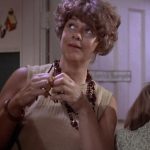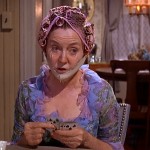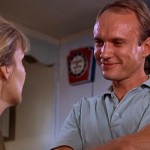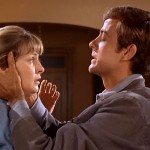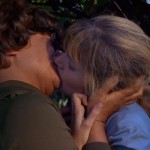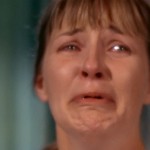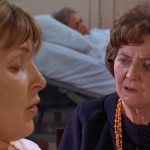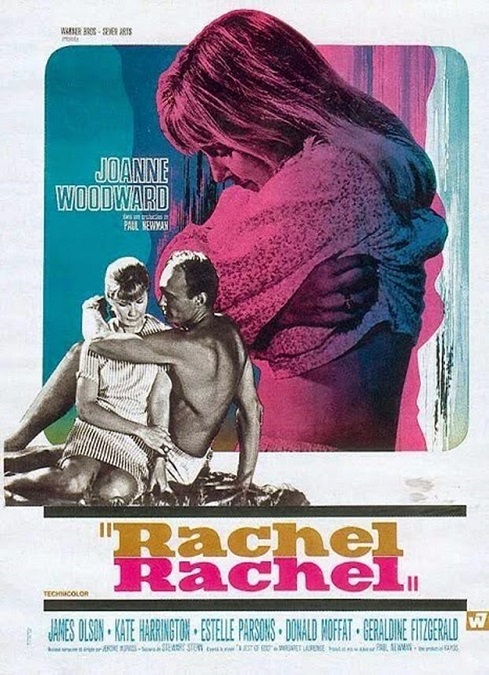
Rachel, Rachel – 1968
Rachel is a psychologically damaged girl, and this movie is about how she goes through some hard and potentially harmful experiences, and overcomes them to become a saner and more self-assured woman. She starts off under the heel of her overbearing mother and by the end, she is her own person. The film goes into her past, into her head, and into her psyche, and does its best not to shy away from the darker aspects of her mental illness. The only problem I had with that is that it only touched on those darknesses without really exploring them.
Joanne Woodward played the title character Rachel Cameron, a grade-school teacher in a small New England town. Right from the start, she is shown as chronically depressed and even close to suicidal. She hates her job, she hates her home, and she hates her life. She is a spinster who has never been with a man and feels guilty at the prospect of sex. It is even shown that she has to rationalize masturbation.
Her mother, May, played by Kate Harrington, is never mean to her except when she consistently compares Rachel to her sister who married a successful man and has children of her own. Her best friend, Calla Mackie, played by Estelle Parsons, is a fellow teacher. Calla is more of a free spirit who has found religion in a serious way. And finally, there is James Olson, playing the part of Nick Kazlik, a sleazy old school-mate with whom she loses her virginity.
The film’s pacing is pretty slow, and to be honest, not much happens. The only thing that keeps things interesting is the little looks inside Rachel’s mind that show us what she is thinking. Every now and then, ethereal dream music would start playing, the screen would shift to soft-focus, and Rachel would be shown doing things like accepting the lecherous advances of her groping boss, or violently shoving an overdose of sleeping pills down her mother’s throat.
These little peeks into Rachel’s mind did a pretty good job of portraying the depths of her depression and her longing to have love and freedom in her life. I suppose that Woodward did a good job with the role, but I would have liked to have been drawn into her character even more, somehow.
At one point in the movie, the character of Calla does something that really surprised me. She convinces Rachel to go with her to a revivalist church service. When Rachel has a bad experience and is overwhelmed with emotion and unwanted human contact, she faints. After the experience, Rachel is in tears and Calla is trying to comfort her. The comfort moves from talking, to touching, to hugging, to touching cheeks, to a passionate kiss! Rachel flees in horror!
Funny, but Wikipedia describes the character, saying, “Is Calla a lesbian, or did she merely react to the emotion of the moment? The film does not answer this question.” In fact, yes, it does. There are two more scenes in the film with the two women which, in my mind, made it very clear. Especially when Rachel says to her, “Calla, sometimes I wish I could have been different for you.” What else could that mean?
Then there was Rachel’s first sexual experience, her pregnancy scare, and her ultimate disappointment when she learned that she was not really with child. And it was not lost on me that when she thought she was pregnant, she was shown smoking and drinking heavily. Is that a result of the era in which the movie was made, or was it a plot point to show how messed up the character was?
Either way, it was some pretty bold subject matter for 1968, made even more surprising by the fact that this film was the actor Paul Newman’s first attempt at directing. I will give the film credit for being pretty gutsy in trying to get into the inner thoughts and feelings of the character, like you can do when you are reading a book, something most movies don’t even attempt because it really slows the pace of the film.

